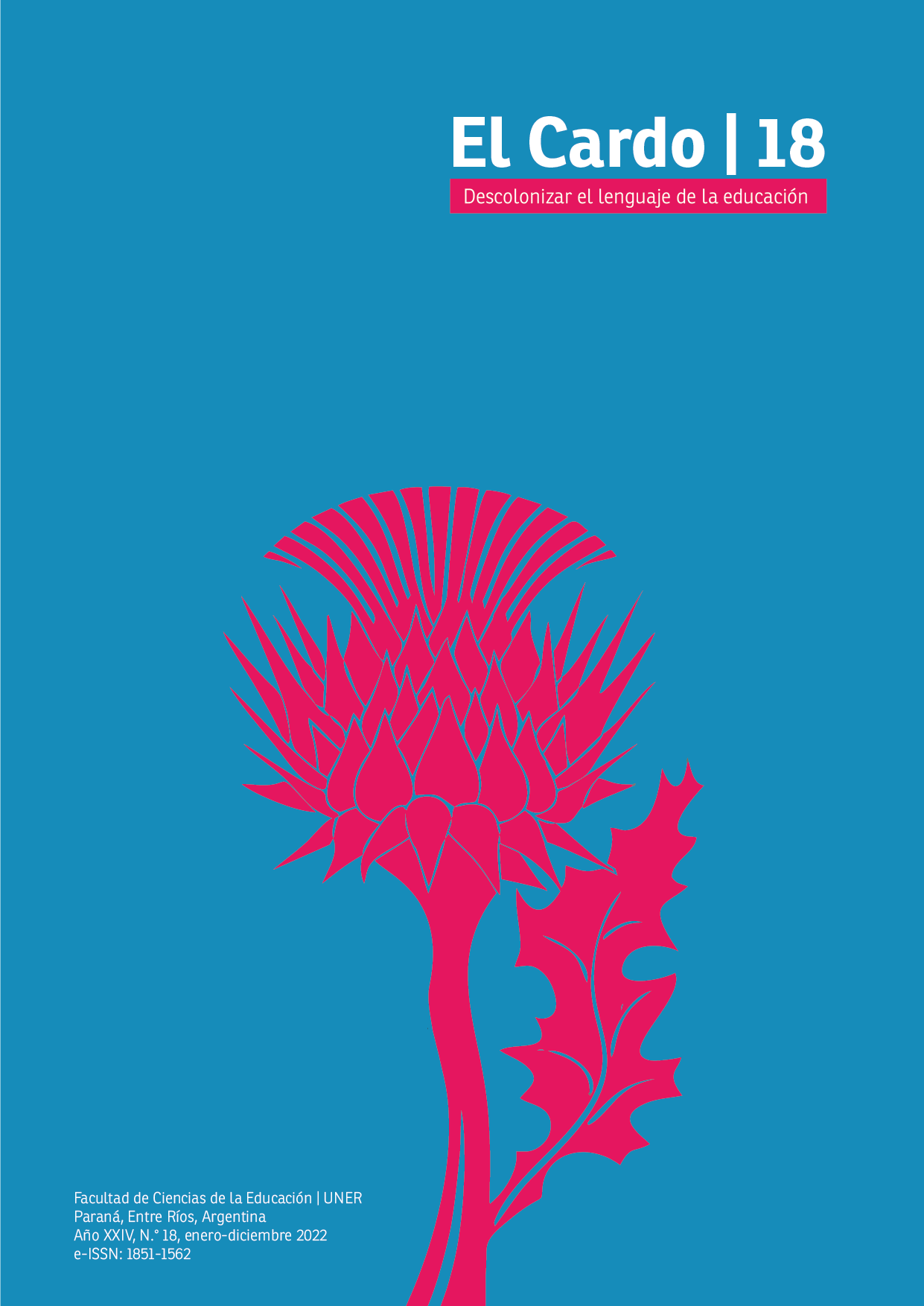Platform capitalism and university during pandemic times. Considerations from a case study in Entre Ríos Province
Main Article Content
Abstract
The article presents a reflection on the advance of platform capitalism and data colonialism in decisions to virtualize university education during the pandemic, based on the results of a case study carried out in the province of Entre Ríos, focused on the "Teaching at the University" axis for research on "Our Argentine public universities in the face of the COVID-19 pandemic" of the Secretary of University Policies of the Ministry of Education of the Nation. The study focused on two Faculties of the National University of Entre Ríos: Health Sciences and Economic Sciences and aimed to problematize the relationships between culture, society, and the university mediated by digital technologies.
This work analyzes some accompaniment devices in the virtuality of the teaching-learning itineraries and the academic community was recreated in university education in a pandemic. The digital productions aimed at students that functioned as strategies for linking and sustaining the teaching-learning relationship are characterized. The semiotic-discursive approach was aimed at analyzing the imaginary figure of the model student that each Faculty builds from its digital proposal, as well as the modes of presentation of the institution before the student audience and the specific proposals aimed at maintaining links between the academic community and the academic community. through the spaces of sociability designed and proposed. The theoretical-methodological prism was based on studies referring to discourses in articulation with critical and interpretive theories on digital culture to identify social meanings and material conditions in which such digital productions were produced. The political decision to join the services of transnational corporate platforms is highlighted here, which involved not only providing them with access to the data of the entire academic community but also accepting the rules of the game that are designed and governed by said platforms.
Downloads
Metrics
Article Details

This work is licensed under a Creative Commons Attribution-NonCommercial-ShareAlike 4.0 International License.
Las ediciones no tienen cargos para las y los autores ni para las y los lectores, y se incita a las y los autores a depositar sus contribuciones en otros repositorios institucionales y temáticos, con la certeza de que la cultura y el conocimiento son un bien de todos y para todos. El Cardo permite la reutilización luego de su edición (Post print) citando la autoría y la fuente original de su publicación. Su uso no puede ser con fines comerciales.
References
Angenot, M. (2010). El discurso social. Los límites históricos de lo pensable y lo decible. Siglo XXI.
Blanco, R. (2011) Intimidad pública y experiencia estudiantil. Revista De La Escuela De Ciencias De La Educación, (6).
Hall, Stuart (1980) Codificar y Decodificar. En: Culture, Media Language. Hutchinson. Pág. 129-139 https://perio.unlp.edu.ar/catedras/comunicacionyrecepcion/wp-content/uploads/sites/135/2020/05/hall._codificar-decodificar.pdf
Jenkins, H. (2007). Convergence Culture. La cultura de la convergencia de los medios de comunicación. Paidós.
Lins Ribeiro, G. (2018). El precio de la palabra: la hegemonía del capitalismo electrónico-informático y el googleísmo, en Desacatos 56, 16-33.
Manovich, L. (2005). El lenguaje de los nuevos medios de comunicación. Paidós.
Mejías, U.A & Couldry, N. (2019). Colonialismo de datos: repensando la relación de los datos masivos con el sujeto contemporáneo. Virtualis, 10(18), 78-97.
Morales, S. (2019). Derechos digitales y regulación de Internet. Aspectos claves de la apropiación de tecnologías digitales. En: Tecnologías Digitales. CLACSO.
Srnicek, N. (2018). Capitalismo de plataformas. Caja Negra.
Van Dijk, J. (2016). La cultura de la conectividad. Una historia crítica de las redes sociales. Siglo XXI.
Verón, E. (1995). Semiosis de lo ideológico y el poder. En La mediatización, Facultad de Filosofía y Letras. UBA.
Zuboff, S. (2020). La era del capitalismo de la vigilancia. La lucha por un futuro humano frente a las nuevas fronteras del poder. Paidós.





